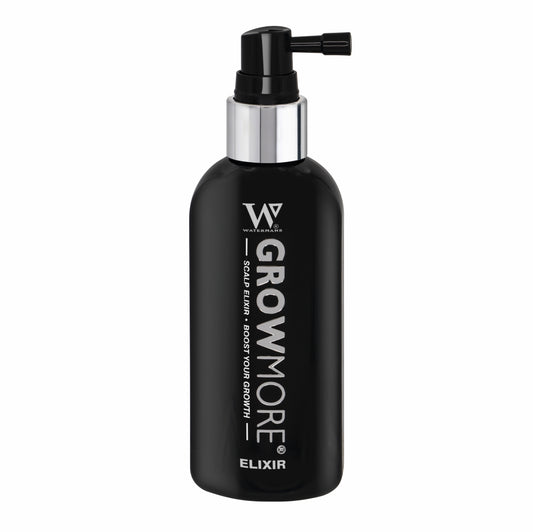Understanding HIV/AIDS: Breaking Down Myths, Embracing Hope, and Promoting Awareness
Share

Human Immunodeficiency Virus (HIV) and Acquired Immunodeficiency Syndrome (AIDS) are topics that have long been shrouded in misunderstanding and misinformation. This guide aims to provide clear, easy-to-understand information about HIV/AIDS, dispel common myths, and promote awareness with hope and facts. Whether you’re learning for the first time or looking to expand your knowledge, this article has you covered.
What is HIV? What is AIDS?
HIV is a virus that attacks the body’s immune system, specifically the CD4 cells (T cells), which help fight infections. If untreated, HIV reduces the number of these cells, making the body more vulnerable to infections and certain cancers.
AIDS is the most advanced stage of HIV infection. It occurs when the immune system is badly damaged, and the body becomes vulnerable to opportunistic infections or certain cancers.
How Does HIV Spread?
HIV spreads through certain body fluids from a person who has HIV. These fluids include blood, semen, vaginal and rectal fluids, and breast milk. The most common ways HIV is transmitted include:
- Unprotected sexual contact with an infected person
- Sharing needles or syringes with someone who has HIV
- From mother to child during childbirth or breastfeeding if untreated
- Less commonly, through blood transfusions if the blood is not tested properly
HIV is not spread by casual contact such as hugging, shaking hands, sharing toilets, or through air or water.
Common Myths About HIV/AIDS
Myth 1: HIV is a death sentence.
Fact: With modern treatment, people living with HIV can live long, healthy lives.
Myth 2: Only certain groups get HIV.
Fact: Anyone can get HIV, regardless of age, gender, race, or sexual orientation.
Myth 3: HIV can be transmitted by touch or sharing food.
Fact: HIV cannot be spread through casual contact.
Myth 4: You can tell by looking if someone has HIV.
Fact: HIV does not have visible symptoms in early stages; testing is the only way to know.
The Importance of Testing and Early Treatment
Knowing your HIV status is key to protecting your health and preventing transmission. Testing is simple, confidential, and often available at clinics, hospitals, or through at-home kits.
Early diagnosis means early treatment, which keeps the virus under control and helps maintain a strong immune system. Antiretroviral therapy (ART) is the standard treatment, which suppresses the virus and prevents progression to AIDS.
If you or someone you know is worried about hair loss as a side effect of medications or stress from health issues like HIV, it’s worth trying Watermans Grow Me Shampoo. This natural, non-medical shampoo is designed to energize the scalp and support healthy hair growth with ingredients like biotin, rosemary, caffeine, niacinamide, argan oil, allantoin, and lupin protein. Learn more about it here.
How HIV/AIDS Affects Hair and Scalp Health
Living with HIV/AIDS or taking some medications can sometimes affect hair growth. Hair loss can happen due to:
- The virus itself weakening your body
- Side effects of antiretroviral therapy or other medications
- Poor nutrition or stress impacting overall health
This can lead to thinning hair, shedding, or dry scalp. Maintaining scalp health and supporting hair growth is an important part of well-being. Natural solutions like Watermans Grow Me Shampoo can help refresh the scalp and volumize hair from the roots, helping restore confidence.
Preventing HIV: What You Should Know
While there is no cure yet, HIV prevention is very effective when proper methods are used:
- Using condoms consistently and correctly during sex
- Regular HIV testing and knowing your and your partner’s status
- Taking pre-exposure prophylaxis (PrEP) if at high risk
- Never sharing needles or syringes
- Ensuring blood products are tested before transfusion
Education and awareness also help reduce stigma and encourage safer behaviors.
Living Positively With HIV: Managing Health and Well-being
Being diagnosed with HIV can be challenging, but many strategies help manage the condition:
- Adhering to ART treatment to keep the virus suppressed
- Regular health checkups to monitor immune health
- Eating balanced meals rich in vitamins and minerals
- Managing stress through relaxation techniques or counseling
- Staying physically active as medically advised
- Using gentle hair care products like Watermans Grow Me Shampoo for scalp and hair health
The Role of Awareness Campaigns and Support Networks
Raising awareness about HIV/AIDS helps combat stigma and misinformation. Communities worldwide support people living with HIV through:
- Educational events and resources
- Support groups and peer counseling
- Access to testing and treatment programs
- Advocating for rights and reducing discrimination
Getting involved or spreading accurate information can save lives and strengthen communities.
Frequently Asked Questions (Q&A)
Q1: Can you get HIV from mosquito bites?
A: No. HIV cannot survive or be transmitted through insect bites.
Q2: How long does it take after exposure to get an HIV test?
A: Most tests detect HIV within 3 to 12 weeks after potential exposure.
Q3: Can pregnant women with HIV have healthy babies?
A: Yes. With proper treatment, HIV-positive mothers can greatly reduce transmission risk to their babies.
Q4: Is HIV/AIDS a global issue?
A: Yes. HIV/AIDS affects millions worldwide, but access to treatment is improving.
Q5: What is the difference between HIV and AIDS?
A: HIV is the virus; AIDS is the syndrome developed when HIV severely weakens the immune system.
Q6: Can HIV be cured?
A: Currently, there is no cure for HIV, but treatment can control the virus effectively.
Q7: How does HIV treatment affect daily life?
A: Modern ART treatments are easier to manage and enable normal, healthy living.
Q8: What products can help with hair loss caused by health issues?
A: Natural shampoos like Watermans Grow Me Shampoo can improve scalp health and support hair growth.
Did You Know?
- Did you know that over 38 million people worldwide are living with HIV as of recent reports?
- Did you know that ART can reduce the amount of HIV in the body to undetectable levels, making transmission unlikely?
- Did you know that stress and illness can speed up hair loss, making scalp care very important?
- Did you know that proper shampoo ingredients like biotin and caffeine stimulate hair follicles?
- Did you know that awareness and education significantly reduce new HIV infections?
For anyone concerned about HIV/AIDS or experiencing hair loss related to health challenges, combining proper medical care with scalp support from natural options like Watermans Grow Me Shampoo offers a holistic approach toward health and confidence. Learn more about keeping your hair strong as you manage your well-being every day.



